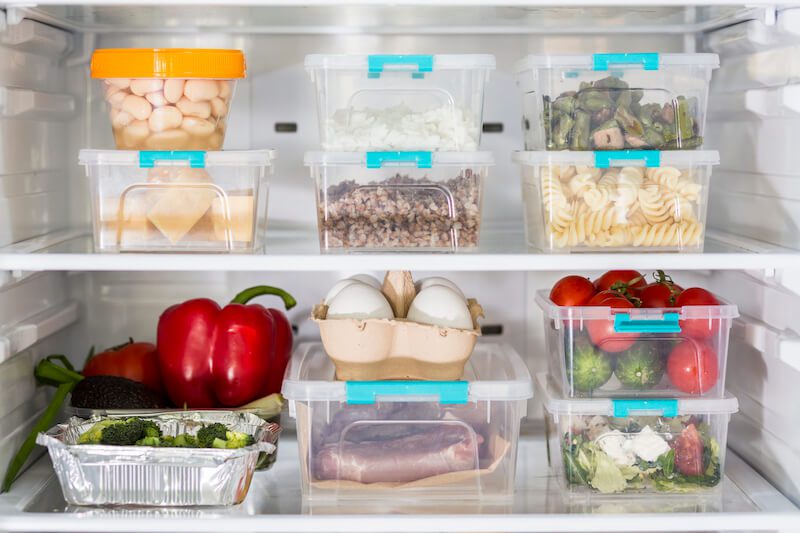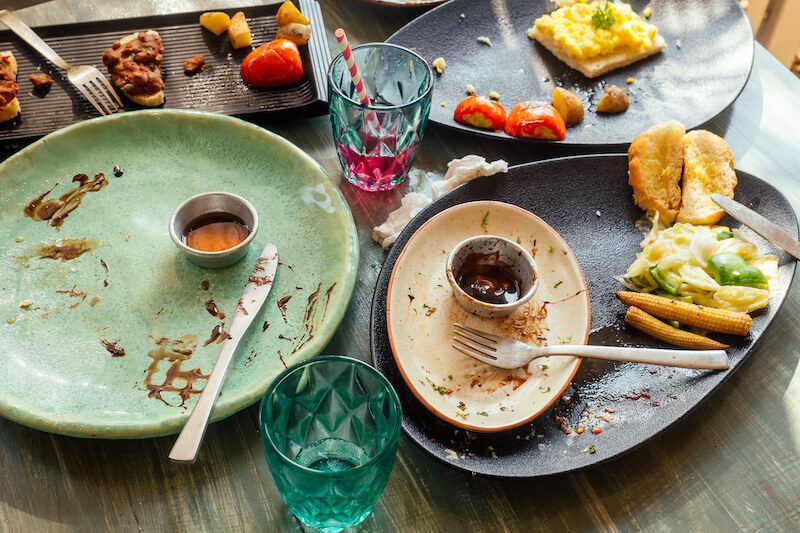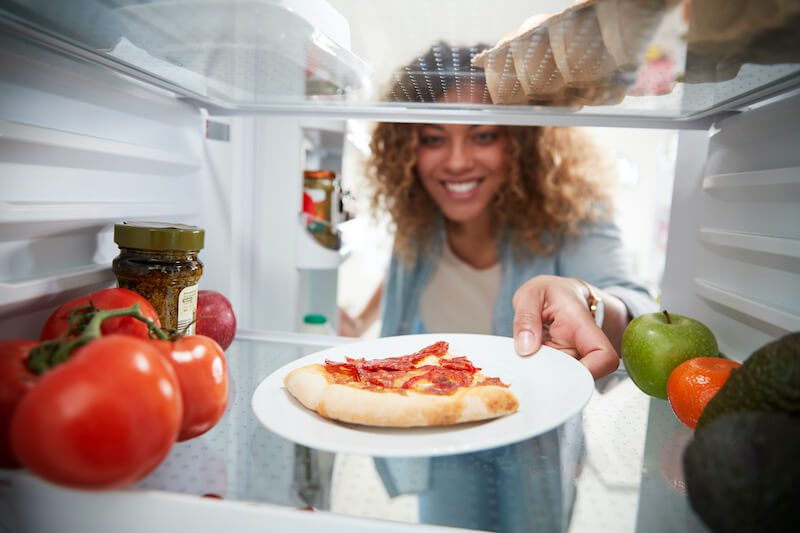
10 Easy Ways to be a Food Waste Warrior!
Over 821 million people do not have enough food to eat – that’s 1 in every 9 people. But the fact is that the amount of food waste generated around the world is enough to feed more than twice that number.
This deplorable food waste is due to the inefficient supply chain, lack of proper storage and transport, and blatant mismanagement of food supply fueled by excessive production and buying. This issue is not only unjust to the millions across the globe, but it also has unfathomable environmental consequences.
Over 33% of the food that is produced is either wasted or lost.
To begin with, agriculture is one of the most resource-intensive sectors. It makes up 70% of the total freshwater consumed by humanity and occupies 38% of the world’s land. With this, the tons of pesticides, fertilizers, and herbicides used and the acres of forest being cleared every day to make more space are adding to the pollution and emissions.
And what happens to all the food that is wasted? The rotting food waste occupying the landfills worldwide is responsible for 8% of the total global greenhouse gas emissions.
Undoubtedly, food waste is an intolerable crisis, but it is surprisingly easy to control.
Here are 10 ways you can prevent food waste as an individual, starting from home:
- Keep track of what you already have
It is very easy to forget what we have stored in the pantry or freezer. So before you go grocery shopping, remember to go over what you already have. This way, you can avoid repeats, prevent waste and save money.
Luckily, apps like NoWaste and Nosh can help you by keeping track of what you already have in your storage and by when you should use it.
2. Use the FIFO strategy

The First In, First Out storage strategy is popularly used by businesses that deal with perishable goods. You should apply the same idea by placing the newer items farther back into the refrigerator or pantry to encourage the use of older produce. Do not give in to the temptation of using new products first!
Every year, we waste $1 trillion worth of food.
3. Plan your meals
The best way to avoid over-buying is to plan your meals. This way, you can utilize the ingredients you have, buy only what you require, and save a lot of your time.
And if you are paying close attention to your health, this habit will allow you to plan and stick to healthier meals and predetermined portions. Apps like Kitche can help you plan your meals if you run out of recipes!
4. Pick the ugly looking fruits and vegetables
It’s a given that everyone wants the best, freshest produce, but this has led to mass wastage of perfectly good food.
A considerable amount of post-harvest food waste is caused due to the unsatisfactory shape, size or colour of the vegetable or fruit. So, choose that weird-looking vegetable; it won’t be less nutritious or tasty.
Every year, 40% of produce is thrown for aesthetic reasons.
5. The ‘best-before’ date is not the same as the ‘use-by’ buy
Even after meticulously planning your meals and cutting down excessive buying, you could still end up with food that is past the date.
But before you dump it in the trash, take a moment to check if the food has really gone bad. Most food items like bread, sauces and jams have a ‘best before’ date. This is not the same as the expiration or ‘use by’ date, so, if stored correctly, it’s generally safe to eat. Be cautious but don’t hesitate to eat food that is past the date but is still good.
6. Be mindful when you are ordering food

This is the most obvious way to avoid food waste. Whether you are at a restaurant or ordering a takeaway, be mindful of your ordering amount.
Restaurants waste 4% to 10% of the food they buy before it even reaches the customers. So let’s not add to that!
If you end up ordering more than what you can eat, don’t be shy and ask for a doggy bag for leftovers. You are doing your bit to prevent food waste.
7. Buying in bulk could be cheaper, but not if you are wasting all the food
Many people prefer to buy their groceries in bulk because of a good deal or because, in some instances, it could be a more sustainable option.
But bulk buying could lead to a lot of waste if you are not using the produce efficiently. Before buying, plan how you will use the produce and try preservation techniques like drying, smoking, pickling, and freezing to make the best use of your purchase.
8. Don’t forget your leftovers

Last night’s dinner or food scraps from a recipe you tried, leftovers could quickly accumulate in your refrigerator till you eventually throw them away.
You can avoid all this waste by using your leftovers as ingredients for your next meal, having a leftover night, or turning the veggie scraps into stocks and soup. There are thousands of recipes available online for you to use up all your leftovers quickly.
9. Share what you don’t want
Have you ever accidentally cooked too much food? Maybe the plans got cancelled, or you made too much bread over the weekend. Whatever the reason, instead of forcing yourself to eat it all or waiting for the food to spoil so that you can throw it away, share your food with your neighbour, friends and family!
There are also many food-sharing apps – like Too Good To Go, OLIO, Karma, Food Rescue – available where you can share the food with other community members or donate the extra food.
10. If nothing works, compost it!

After doing all of this, you might still end up with vegetable scraps or some eggshells. Instead of putting it in the trash, compost your kitchen waste!
Composting is the best way to utilize your organic waste. If your community doesn’t have a composting program, you can easily compost your waste at home, even in a limited space. All you need is an old bin or tank, soil and your waste!





